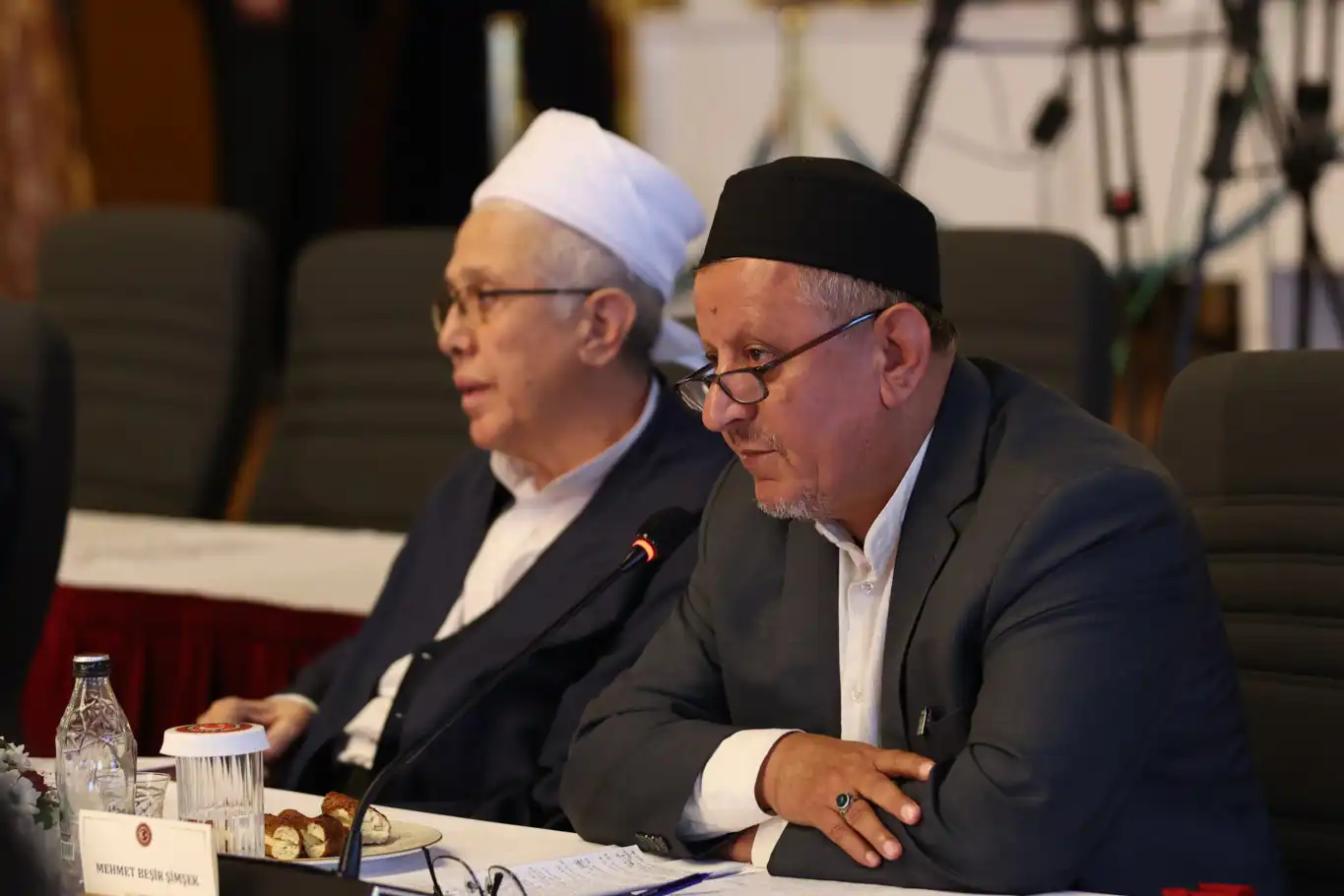ITTIHADUL ULEMA calls for comprehensive justice-based resolution to the Kurdish issue


The National Solidarity, Brotherhood, and Democracy Commission convened its 11th session on Thursday at the Grand National Assembly of Türkiye (TBMM), under the leadership of Speaker Numan Kurtulmuş.
The meeting brought together lawmakers, academics, and dozens of civil society representatives from across Türkiye, with a special focus on the country’s eastern and southeastern provinces, where much of the Kurdish population lives.
The central theme of the meeting was the future of Türkiye’s social contract and how to permanently resolve the century-old Kurdish question — a challenge that continues to shape the country’s politics, economy, and democracy.
A Historic Meeting Amid a Changing Türkiye
Speaker Kurtulmuş opened the session by stressing that this was not an ordinary parliamentary gathering but a critical forum for national dialogue:
“We are writing history,” he said. “Türkiye is a great nation that must move beyond the politics of denial and conflict. We must build a new future based on equal citizenship and brotherhood.”
This latest meeting follows a series of regional consultations and hearings in Diyarbakır, Mardin, Van, and Şanlıurfa, where Commission members listened to the grievances of citizens, local NGOs, business leaders, and religious scholars. The Ankara session was seen as a culmination of these consultations, paving the way for formal recommendations to be submitted to the government later this year.
ITTIHADUL ULEMA’s Report: Justice, Brotherhood, and a Shared Future
One of the most detailed presentations of the day came from ITTIHADUL ULEMA (Union of Islamic Scholars), a prominent body of religious scholars and thinkers with deep roots in Türkiye’s southeast.
Deputy Chairman Mehmet Beşir Şimşek delivered a 40-page report titled “Findings and Solution Proposals Regarding the Consolidation of Brotherhood.” The report sought to place the Kurdish question in its proper historical, social, and spiritual context, arguing that the solution must be rooted in Islamic principles of justice, equality, and mutual respect rather than narrow nationalism or purely security-based approaches.
Historical Perspective: One Thousand Years of Coexistence
The report reminded participants that Turks and Kurds have shared a common destiny for nearly a millennium. From the victory at Malazgirt in 1071, where Kurdish tribes fought alongside Seljuk forces, to the Ottoman Empire’s defense of the Caliphate, and finally the Turkish War of Independence, Kurds and Turks were partners in state-building and guardians of Islam.
This bond, the scholars argued, was eroded by the aggressive secularization and centralization policies of the early Republic, which sought to forge a singular “Turkish” identity at the expense of ethnic and religious diversity.
“The policies of denial and assimilation did not erase the Kurdish identity — they deepened resentment,” the report stated. “This alienation was later exploited by ideological movements such as Marxism and separatism, leading to decades of armed conflict.”
PKK Violence: A Double Tragedy for Kurds
ITTIHADUL ULEMA also emphasized that the PKK’s armed struggle inflicted enormous damage not only on the Turkish state but also on the Kurdish people themselves.
The report recalled the 1992 Susa Mosque Massacre, in which PKK militants executed ten worshippers during evening prayers, as well as the assassination of dozens of respected religious scholars, village guards, and local leaders.
“The PKK targeted the religious heart of Kurdish society,” Şimşek said. “By killing imams and bombing mosques, it attempted to sever the region’s connection with Islam and impose an ideology alien to our culture.”
Concrete Proposals for a Just Solution
Moving from diagnosis to prescription, ITTIHADUL ULEMA outlined a comprehensive set of policy recommendations aimed at achieving lasting peace:
Call to Both the State and the People
The report concluded with a moral and spiritual appeal:
Political Reactions and Analysis
Commission Chair Kurtulmuş praised the report, calling it “a contribution of great value” and promising that its recommendations would be studied closely. Several MPs from both the ruling party and the opposition also expressed support for the idea of a civilian constitution and broader democratization.
Political analysts note that ITTIHADUL ULEMA’s intervention may carry significant weight because it reflects the views of a religiously conservative Kurdish constituency — one that rejects both militant separatism and extreme nationalism.
A Critical Moment for Türkiye’s Future
With local elections approaching and regional instability threatening Türkiye’s borders, many believe that resolving the Kurdish question through democratic and just means could strengthen national unity and stabilize the political climate.
If the Commission’s proposals are taken seriously and translated into legislation, observers argue, Türkiye could not only close one of the deepest wounds in its modern history but also set an example for the wider Middle East, where ethnic and sectarian conflict continue to plague societies.
“The century-old Kurdish issue can no longer be postponed,” Şimşek concluded. “If we act now with courage and wisdom, future generations will remember this as the moment Türkiye chose brotherhood over division.” (ILKHA)
LEGAL WARNING: All rights of the published news, photos and videos are reserved by İlke Haber Ajansı Basın Yayın San. Trade A.Ş. Under no circumstances can all or part of the news, photos and videos be used without a written contract or subscription.
Turkish Coast Guard teams rescued 23 irregular migrants, including three children, off the coast of Ayvacık district in Çanakkale after they were reportedly pushed back into Turkish territorial waters by Greek authorities.
Prof. Dr. Safi Arpaguş, the mufti of Istanbul, has been appointed as the new president of Türkiye’s Directorate of Religious Affairs (Diyanet), according to a presidential decree published Thursday in the Official Gazette.
As the new academic year begins, the Hope Caravan Association (Umut Kervanı Derneği) has once again stepped forward to support students in need by distributing essential stationery supplies in Kocaeli.